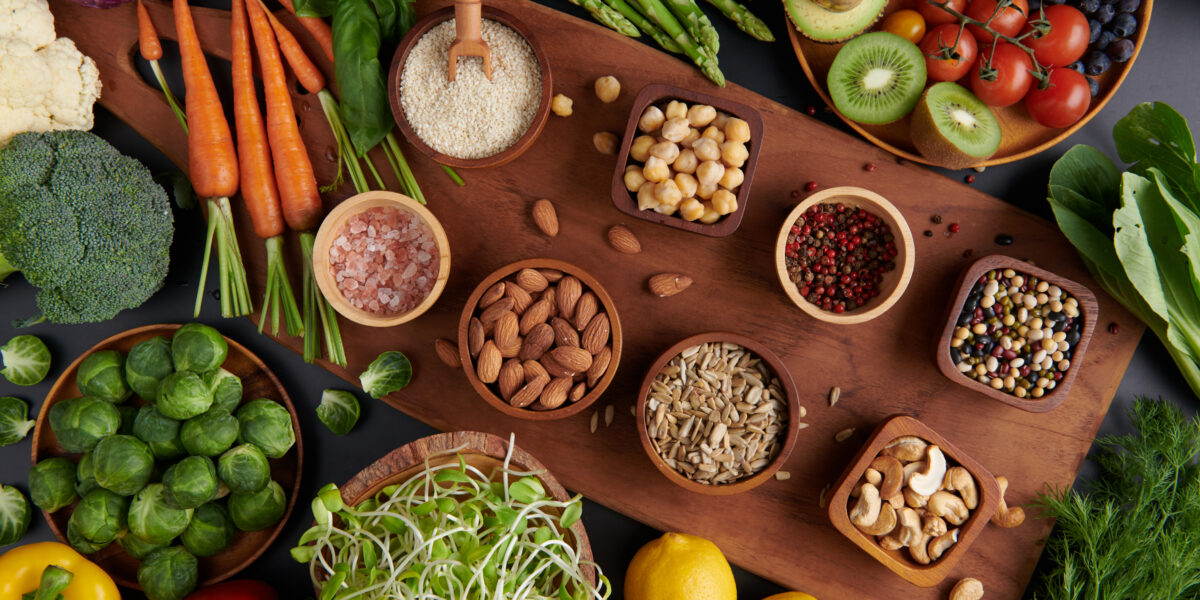As individuals age, maintaining good health and vitality becomes increasingly important. Proper nutrition is a crucial component of healthy ageing. Nutrition plays a crucial role in supporting overall health, maintaining energy levels, and preventing age-related health conditions.
The Importance of Nutrition for Aging Well
Good nutrition is essential for older adults to maintain their health, energy levels, and quality of life. Aging brings about various physiological changes that can impact nutrient absorption, metabolism, and overall nutritional needs. Additionally, older adults may face challenges such as decreased appetite, dental issues, or difficulty preparing meals, making it crucial to focus on nutrient-dense foods and appropriate dietary choices.
Key Nutrients for Seniors
Proper nutrition for aging well involves ensuring adequate intake of key nutrients. Here are some essential nutrients that play a vital role in supporting the health and vitality of older adults:
1. Protein
Adequate protein intake is vital for preserving muscle mass, strength, and function. As individuals age, muscle mass tends to decline, which can lead to reduced strength and mobility. Consuming sufficient protein can help counteract muscle loss. Good sources of protein include lean meats, poultry, fish, eggs, beans, and dairy products.
2. Fiber
Fibre helps to control blood sugar levels, avoid constipation, and aid in digestion. It also provides a feeling of fullness, which can be beneficial for weight management. High-fiber foods include whole grains, fruits, vegetables, legumes, and nuts.
3. Calcium and Vitamin D
Calcium and vitamin D are crucial for maintaining bone health and preventing osteoporosis. As individuals age, bones tend to become more brittle, increasing the risk of fractures. Dairy products, fortified plant-based milk, leafy green vegetables, and sunlight exposure are excellent sources of calcium and vitamin D.
4. Omega-3 Fatty Acids
Omega-3 fatty acids have anti-inflammatory properties and support heart and brain health. They have been associated with a reduced risk of heart disease, cognitive decline, and depression. Fatty fish (such as salmon and sardines), flaxseeds, chia seeds, and walnuts are rich sources of omega-3s.
5. Vitamin B12
Vitamin B12 is necessary for nerve function and the production of red blood cells. Older adults may have difficulty absorbing this vitamin, leading to a higher risk of deficiency. Animal products, fortified cereals, and supplements can help meet the recommended intake.
Healthy Eating Tips for Seniors
In addition to ensuring adequate nutrient intake, adopting healthy eating habits is crucial for aging well. Here are some tips to support good nutrition in later years:
1. Focus on Whole Foods
Give nutrient-rich whole foods like fruits, vegetables, whole grains, lean meats, and healthy fats top priority. These foods provide a wide range of essential nutrients and are generally lower in added sugars, unhealthy fats, and sodium.
2. Stay Hydrated
Dehydration is a common issue in older adults and can contribute to various health problems. Drink plenty of water and consume hydrating foods like soups, fruits, and vegetables. Aim to consume at least eight cups of water per day, or more if needed.
3. Practice Portion Control
Adjust portion sizes to match individual energy needs. As metabolism slows down with age, it is important not to overeat. Smaller, frequent meals throughout the day can help maintain energy levels and prevent overconsumption.
4. Reduce Sodium Intake
High sodium intake can contribute to hypertension and other health issues. Opt for low-sodium options and use herbs, spices, and lemon juice to flavor dishes instead of relying on salt. Pay attention to processed and packaged foods because they frequently have excessive salt content.
5. Limit Added Sugars
Excess sugar intake can contribute to weight gain, inflammation, and chronic diseases such as diabetes and heart disease. Choose whole fruits over sugary snacks and beverages. Read food labels carefully to identify hidden sources of added sugars.
6. Meal Planning and Preparation
Plan meals in advance to ensure a balanced diet and avoid relying on unhealthy convenience foods. Consider involving family members or caregivers in meal planning and preparation to make the process more enjoyable and manageable. If cooking becomes challenging, explore meal delivery services or seek assistance from caregivers or family members.
Summary:
Nutrition plays a vital role in supporting health and vitality in later years. By focusing on nutrient-dense foods, staying hydrated, practicing portion control, and making informed dietary choices, older adults can optimize their nutrition and overall well-being. Adopting healthy eating habits, such as consuming nutrient-rich whole foods, staying hydrated, practicing portion control, and limiting added sugars and sodium, can significantly contribute to a senior’s overall well-being. By paying attention to their diet and making informed dietary choices, older adults can optimize their nutrition and quality of life.
The IICAD Institute in Mumbai stands as a reputable institution that understands the significance of proper nutrition for aging well. The institute provides guidance and resources to seniors and caregivers, ensuring that they have access to valuable information and support for maintaining a balanced and healthy diet. Through the IICAD Institute’s expertise, seniors can receive the necessary knowledge and tools to make informed choices about their nutrition, empowering them to age gracefully and lead fulfilling lives.

